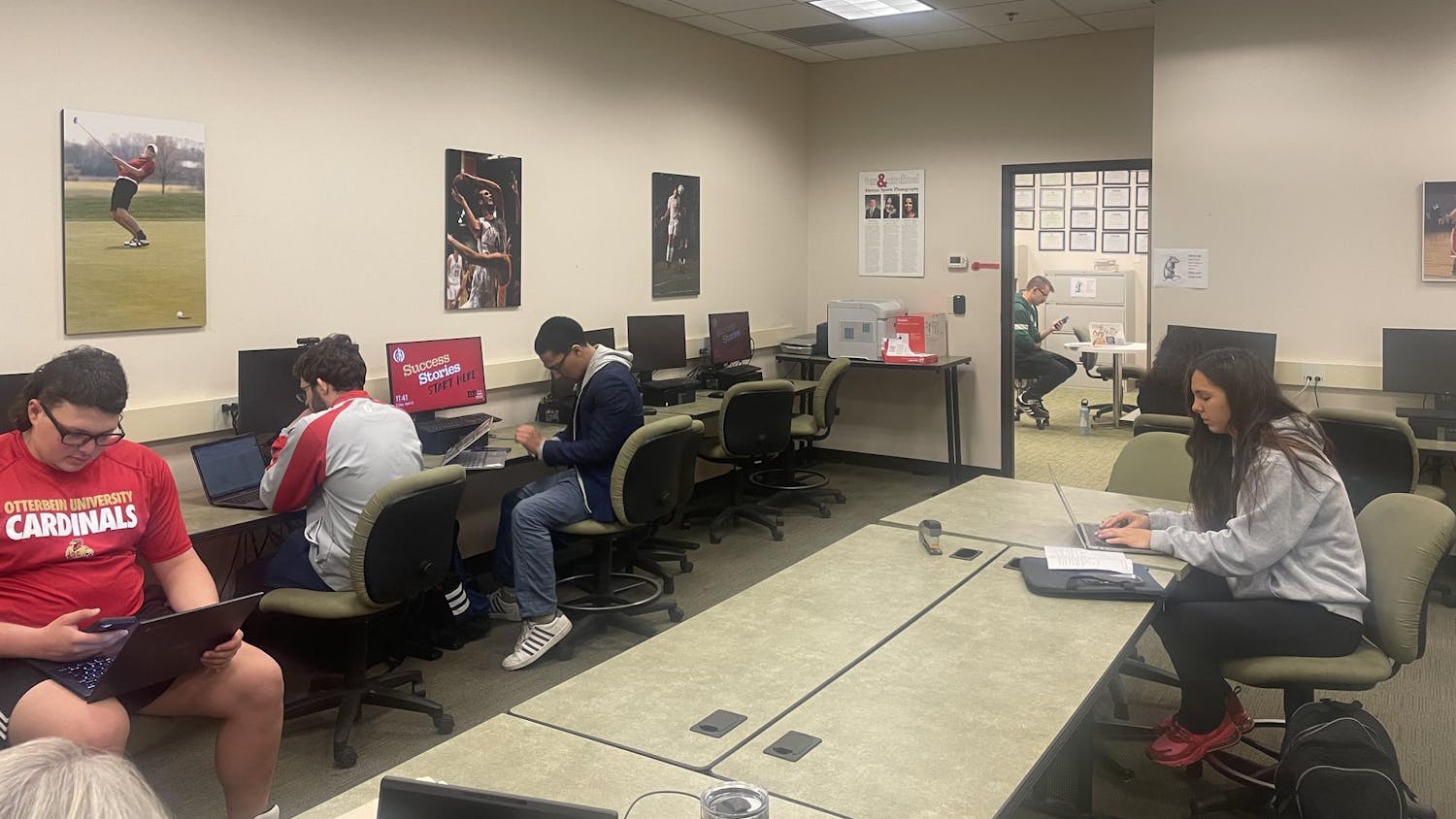Walking through campus, you’ll notice that the grounds are kept extremely clean. However, tomorrow a big, wretched, ecosystem-killing pile of trash will invade the front of the Campus Center. The trash you leave behind today from both the Cardinal’s Nest and the OtterDen will be bagged up and set aside for students and faculty to marvel over as part of an event put on by Bon Appétit. Though this will only include 24 hours’ worth of trash, expect the pile to be substantial.
Food waste is becoming a rather large ordeal here on campus. Many students don’t realize the consequences of their actions. When tossing a simple item away, you may not realize that it may eventually contaminate the soil and make it useless for future generations, or the bag that is carrying it may end up in the ocean, killing animals by the thousands. We are environmental terrorists.
Kristen Giesting, a junior environmental science and biology double major, is the president of Plan-It-Earth, Otterbein’s student-run environmental awareness organization. She said that food waste doesn’t decompose because it lacks the necessary oxygen. “It’s upsetting to see so much food being wasted in the Campus Center because so much fossil fuel energy was put into producing it,” Giesting said. “In my mind, throwing away food is directly contributing to climate change”
Terry McGhee, the new general manager for Bon Appétit, said that this event will allow him to observe the students’ participation and gain a better understanding of where they stand on food waste. He also said that they will be working with Plan-it-Earth in the future.
This is not the first time Bon Appétit has taken steps to improve its sustainability. For example, it always try to source locally, it does not use the disposable kind of plastic trays that other schools use and they put on events such as this one.
Tomorrow is also Low Carbon Diet Day, and an employee who knows about sustainability will be available to answer any questions.
Garbage usually ends up in landfills, which effects wildlife and destroys local ecosystems. Garbage buried in the ground can contaminate the soil around it with toxins, preventing life from growing in it and often preventing humans from using that space for residences because of the health risks. It eventually releases the greenhouse gas methane, which is detrimental to our atmosphere.
Remember that water also employs a huge role in food waste. According to the United States Geological Survey, it takes over 400 gallons of water to produce a single egg. Depending on how it was produced, a single hamburger may take between 4,000-18,000 gallons. So by throwing away that egg or hamburger, you are wasting tons of water.
Here are some tips I suggest everyone try to abide by. They are simple, yet highly effective:
• Choose to finish what is on your plate in lieu of going up again for other food items.
• Only get what you really want, despite how persuasive the chefs may be.
• Offer your leftovers to someone else you are enjoying your meal with.
• If you find yourself with an item that can be brought back to the dorm, put it into a napkin and bag it.
• Think. Don’t get something you know you won’t eat.






